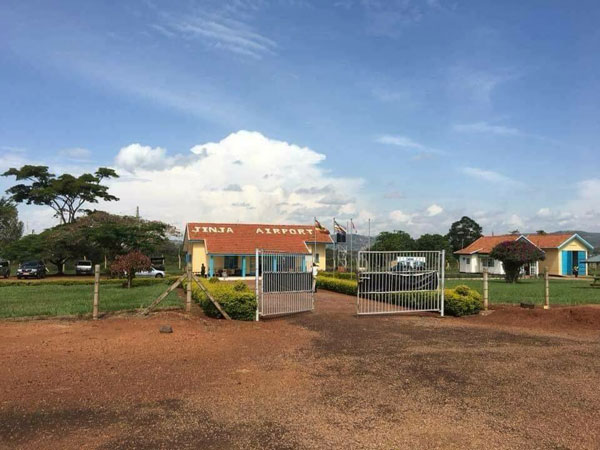
If Uganda is serious about developing new routes to connect the country, it is imperative that a dedicated route development project is formed with a focused team to drive it.
COMMENT | DEREK NSEKO | In the pursuit of economic growth, nations around the world are increasingly recognizing the pivotal role of air-route attraction strategies. These initiatives have the power to breathe new life into economies. Uganda, a nation teeming with untapped potential, must seize this opportunity to chart its course towards prosperity.
It is imperative for governments to understand that air-route attraction strategies cannot be left solely in the hands of airports. People fly to destinations, not to airports. While airports traditionally take charge and rightfully play a key part, they do not always apply a broader economic context of the country and naturally their revenue models prioritize passenger numbers over overall contribution to the local economy. But numbers are not always everything, quality of numbers can produce better comparative economic benefits as has been achieved in some countries across the world. Because of this, a collaborative approach, with strong government leadership at the helm, is essential in creating a powerful route development campaign.
Air connectivity is the lifeblood of competitiveness for cities, regions, and countries. Uganda’s level of connectivity with key markets holds the key to unlocking its potential as one of the largest tourism markets on the African continent as was its potential to attract trade and investment. The advent of new generation aircraft, presents airlines across the world with a golden opportunity to establish new routes and serve previously underserved destinations or embrace innovative business models.
If Uganda is serious about developing new routes to connect the country, it is imperative that a dedicated route development project is formed with a focused team to drive it. Effective route development initiatives require the orchestration of a broad and collaborative coalition. Government leaders must bring together tourism authorities, investment-promotion institutions, airports, private-sector associations, and government agencies at local, regional, and national levels. By aligning all stakeholders towards a common route development vision, the destination can speak with a unified voice, presenting a compelling case to airlines and investors.
Market knowledge is a valuable asset in identifying opportunities and strengthening business cases. Tour operators can provide invaluable insights, while airports can offer operational support to airlines. Hoteliers, on the other hand, can participate in guarantee schemes, and large companies can support the initiative by guaranteeing seats or cargo space. Ensuring all players are aligned with the route development vision is crucial for success.
Data and analytics play a pivotal role in underpinning the case for route attraction. Government-led efforts must harness the power of data to target key markets and demographics for their own marketing campaigns. Additionally, this data can support airlines in forecasting demand, enabling them to make informed decisions and optimize flight schedules.
To fully capitalize on the potential of route development, Uganda must also tap into the power of its local communities. Engaging and empowering communities living in and around tourist destinations can yield numerous benefits. By involving local residents in tourism-related activities, such as providing authentic cultural experiences or sustainable ecotourism initiatives, Uganda can create inclusive growth that directly benefits its people.
Furthermore, it is essential to recognize the interconnectedness of different visitor types and their impact on flight profitability and seasonality. An effective route development strategy should consider the diverse needs and preferences of various traveler segments, from leisure tourists to business travelers. Understanding the dynamics of these segments and their intersection can inform pricing strategies, flight schedules, and marketing campaigns, ultimately leading to enhanced profitability and a thriving tourism sector
Uganda must also confront a range of air transport risks, both global and local. From the challenges posed by pandemics like COVID-19 to more specific concerns such as Ebola outbreaks and politically driven issues like the draconian anti-gay laws, the nation must address these risks head-on. By implementing comprehensive risk mitigation strategies, Uganda can provide a stable and secure environment for visitors and investors alike.
The country’s infrastructure challenges cannot be overlooked either. The absence of alternative airports in catchment areas close to the main airport poses a hindrance to airline expectations. However, with strategic planning and investment, destinations like Jinja could emerge as focal points of entry for tourism traffic. By developing these alternative airports and improving their connectivity, Uganda can unlock new avenues for economic growth.
Uganda stands at a crossroads, poised to embark on a journey of economic transformation through strategic air access and route development. By embracing this opportunity, the nation can tap into its vast tourism potential, attract high-value visitors, and foster sustainable growth. It is the collective responsibility of government, industry partners, and citizens to come together, charting a new course towards a prosperous and vibrant future for Uganda.
********
 The writer, Derek Nseko is an aviation consultant, a qualified commercial pilot, Founder and CEO at Airspace Africa and iFly Global. derek@airspace-africa.com twitter: @av8r_derek
The writer, Derek Nseko is an aviation consultant, a qualified commercial pilot, Founder and CEO at Airspace Africa and iFly Global. derek@airspace-africa.com twitter: @av8r_derek
 The Independent Uganda: You get the Truth we Pay the Price
The Independent Uganda: You get the Truth we Pay the Price






Good day brother Derek,
This what you have shared in here is a very rich knowledge and I would suggest that you should share this with some key government leaders including the president himself. Uganda 🇺🇬 truly needs this urgently and it seems like the country is still nagging behind a lot when it comes to Aviation Economy Approach.
With only one small Airport in the whole country. This must change. Uganda 🇺🇬 also needs to have a broader mindset towards this kind of investment opportunity.
People in diaspora like us who may think of owning Private Jets and using them to come to Uganda 🇺🇬 may find it extremely challenging due to some mindset in the country that may think otherwise. Whereas this is a common thing now in most African countries like Nigeria where one can own a fleet of Private Jets and people and government is just happy with them.
Owning a Private Jet and a private Runway in Uganda 🇺🇬 is still a dream and I don’t even think one can dare to do such an investment in the country as still survive the Web of opposition…???
You are a man with a good vision but I think you have to share it with the men who runs the country for it’s realization and all of us will be happy. Please don’t give up.
Thanks and blessings